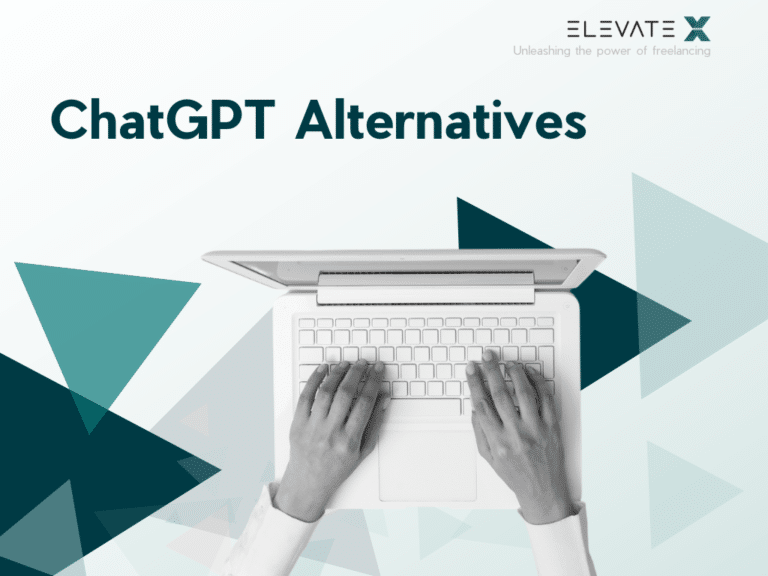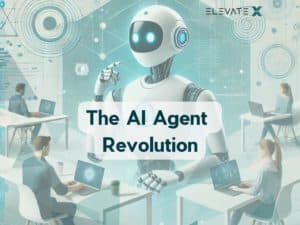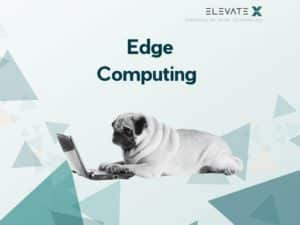Shortly before the turn of the year, OpenAI released ChatGPT, the first publicly accessible AI chatbot, surprising industry experts and laypeople alike with its precise responses and freely generated texts. While ChatGPT is likely the most well-known at the current time, it is by no means the only AI chatbot. In this blog post we will introduce you to 12 ChatGPT alternatives.
What Is ChatGPT?
ChatGPT stands for “Chatbot Generative Pre-trained Transformer,” it is an AI chatbot and thus a generative AI. OpenAI, the company behind the AI chatbot, was originally founded by Elon Musk and Sam Altman, and in 2019, it secured a billion-dollar investment and cooperation from Microsoft. At the current time, ChatGPT is available for free in the Free edition and as a paid service in the more comprehensive ChatGPT Professional Edition.
KEY POINTS
- ChatGPT is an AI chatbot and therefore a generative AI.
- The artificial intelligence is able to understand written text – it can also write texts itself.
- The AI does not lack disadvantages, which is why it still cannot replace humans.
- Besides ChatGPT, there are numerous other AI chatbots.
What Can ChatGPT Be Used For?
As a generative language and text-based chatbot, artificial intelligence is capable of understanding written content – it can also compose texts itself. When you engage with the chatbot, it works somewhat similar to interacting with a human. The AI understands the intention behind the written text, can engage in conversation with you, or even independently create texts and code. This makes the range of applications quite diverse. For example, the AI could write a blog post like this one (though it didn’t in this case), assist programmers with coding, or serve as a source of information when you have questions or need explanations. The AI can also perform text translations.
Why Use A ChatGPT Alternative? (Disadvantages Of ChatGPT)
An AI that genuinely understands written words and places them in a contextual framework to deliver not predefined standard responses but freely generated answers – this is indeed revolutionary and a significant technological advancement. However, the AI does not lack shortcomings, which is why it still cannot replace a human. Some disadvantages include:
- ChatGPT was trained on older datasets, so its answers and texts lack freshness.
- The overall data quality is rather subpar, lacking any verification mechanism to ensure the validity of used sources.
- If lacking valid sources, the AI tends to make things up, leading it into a spiral of misinformation and “fake news.”
- ChatGPT lacks mastery of playing with language; the generated texts ultimately sound very similar to a trained eye. Those expecting humor or prose won’t find it in the AI.
- The AI significantly intrudes into people’s lives; it is largely unfamiliar with data privacy, making millions of people around the world susceptible to AI profiling.
- ChatGPT isn’t particularly suitable for online marketing or SEO, as the tool generates relatively similar texts and content at its core, causing companies to forfeit any competitive edge over rivals and become part of an indistinguishable mass of AI-generated content websites.
Bard is Google’s chatbot AI that utilizes the LaMDA technology (Language Model for Dialogue Applications). While it entered the market a bit later, it has since received numerous updates and gained supporters.
Advantages:
- Unlike ChatGPT, Bard is consistently connected to the internet, thus providing current information.
- The user interface allows easy switching between light and dark modes.
- Has received several updates to support code generation.
- Can output content in formats such as PDF, HTML, or Word.
Disadvantages:
- Conversations with Bard feel less dialogue-oriented; the conversational flow isn’t as smooth.
- Sometimes, the AI tends to generalize strongly.
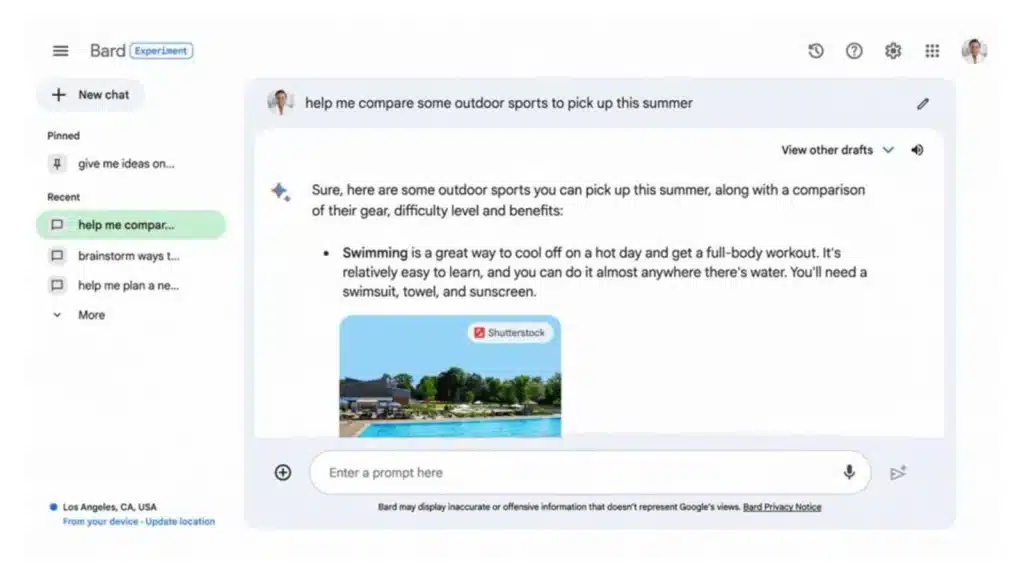
Backed by Microsoft’s billion-dollar investment in OpenAI, the company now has its own AI called Bing AI, which is directly integrated into the Edge browser. The AI is built on the fourth version of ChatGPT and, thanks to its integration with Edge, enables quick data import and prompts related to visited websites.
Advantages:
- Constantly connected to the internet (up-to-date).
- Uses the latest ChatGPT-4 version, which is still a paid service for ChatGPT itself.
- Different buttons in the interface allow quick adjustments (e.g., for text length, tone, or intended use of the response).
- Can transparently identify sources
Disadvantages:
- Currently, there are request limitations.
- Browser dependency on Edge.
- Some responses may still have relatively long loading times.
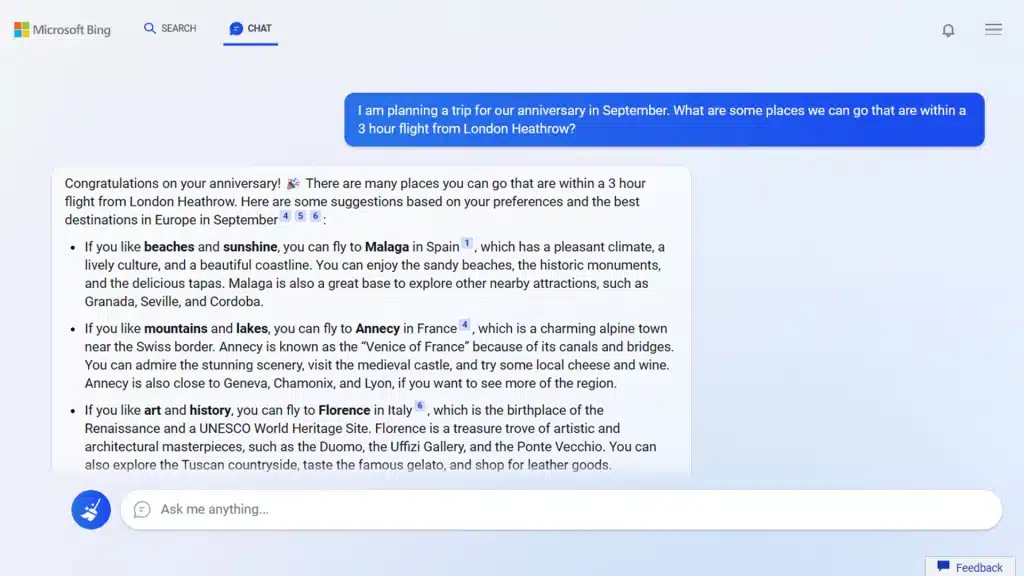
HuggingChat was developed by an open-source community of developers specializing in AI and machine learning applications. The AI is based on ChatGPT-3 and closely resembles the OpenAI model in its interface.
Advantages:
- Intuitively usable interface
- Particularly adept at problem-solving
- Very responsive
Disadvantages:
- Lacks up-to-date datasets
- Code output is not on the level of ChatGPT
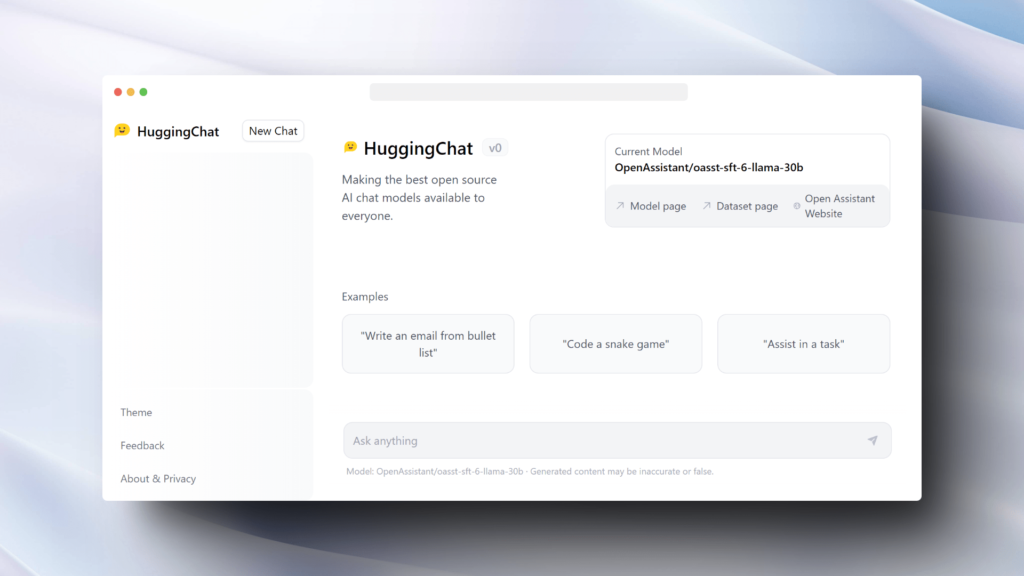
YouChat is part of the relatively lesser-known You.com search engine. Developed by former employees of the CRM tool Salesforce, this chatbot is also based on ChatGPT-3 and excels in transparently citing sources. The fee-based YouPro version contains the latest GPT-4 technology.
Advantages:
- The interface resembles a search engine rather than a dialogue window
- Sources are directly referenced from Google and named
Disadvantages:
- The accuracy of answers leaves something to be desired, as even the developers themselves caution
- Ownership of the answers’ copyrights is unclear
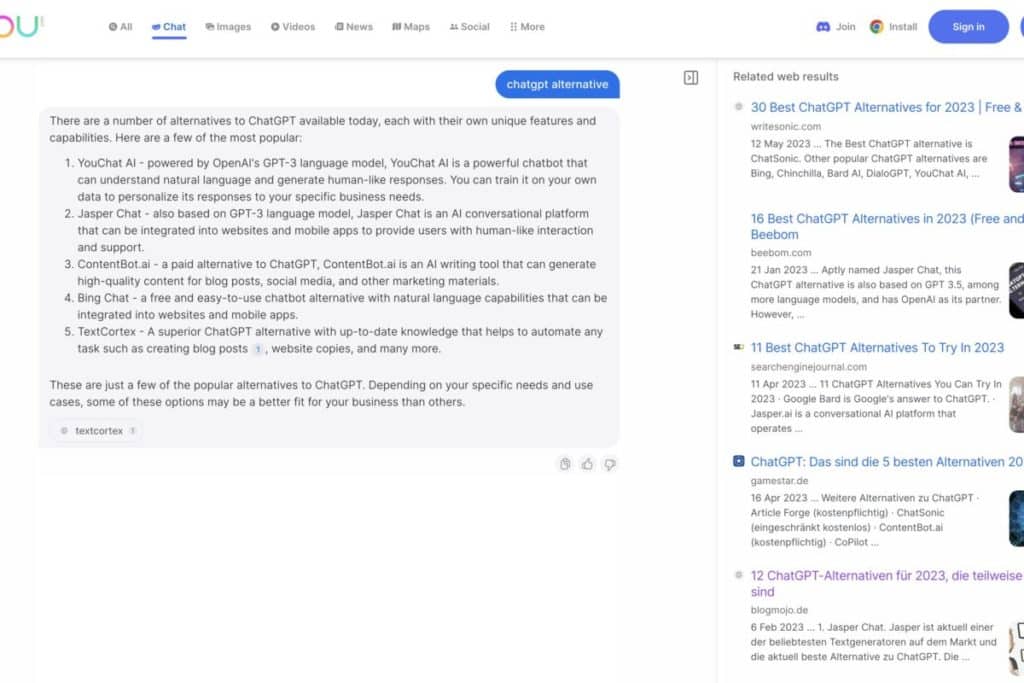
Sparrow was developed in response to the misinformation prevalent in language AIs. The bot aims to provide answers while avoiding getting entangled in “fake news” and fabricated sources, which is a standard issue with GPT models. This AI operates with a more tightly defined “rulebook” than its competitors.
Advantages:
- Ability to receive “safe” fact-based answers that are designed not to be emotionally hurtful
- Designed for English language use
Disadvantages:
- Works adequately only in English
- Still in beta
- Stricter rule framework naturally sacrifices flexibility
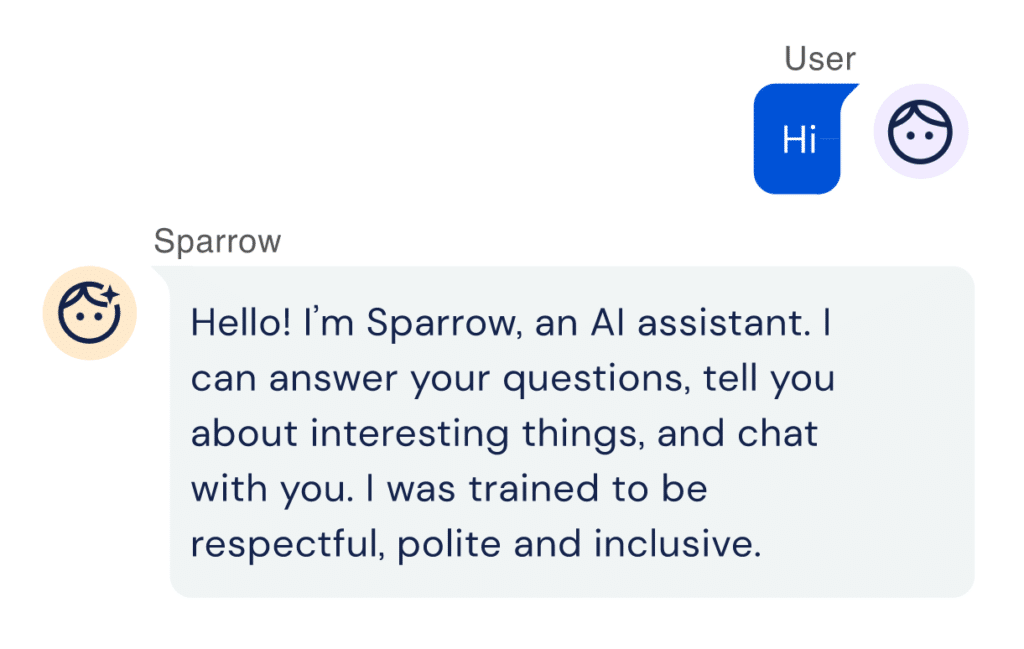
Built upon the foundation of GPT3.5+, Chatsonic is a specialized AI developed by Writesonic, primarily focused on quickly generating content such as blog and social media posts. The AI’s emphasis is on text generation.
Advantages:
- Content sounds somewhat less “robotic” compared to ChatGPT and similar models
- Can incorporate current events
- Functions with voice input as an alternative
- Can generate images
Disadvantages:
- Misinformation is not uncommon
- Various subscription plans limiting the number of responses (or AI-generated words) make Chatsonic relatively expensive.
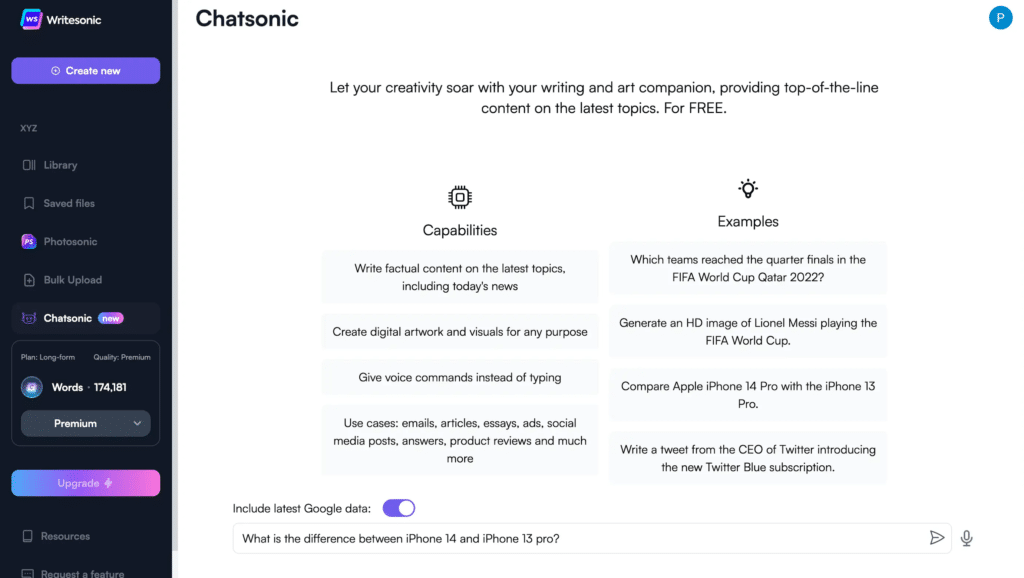
OpenAI Playground specializes in delivering precise answers, even to imprecise questions. Prompters are supported by built-in suggestions in the interface, and there are separate menus for various functions, such as translations or blog post creation.
Advantages:
- Potentially well-suited for very specific inquiries
- Relevant templates in the UI for different tasks
Disadvantages:
- Works better the more specific the prompt is (prompt engineers have advantages)
- Less beginner-friendly compared to other AI alternatives
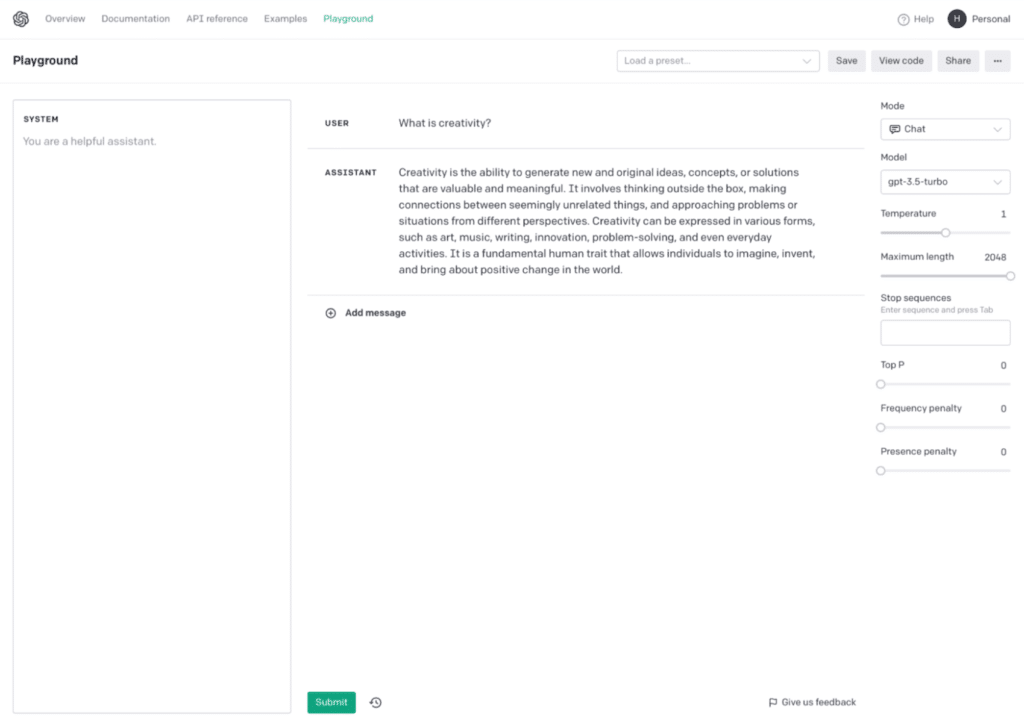
Character.AI stands out significantly from the chatbots mentioned so far, as the AI simulates a specific personality (real or fictional) in its responses. This could be Tony Stark or Donald Trump, a psychologist, or Super Mario. The AI aims to adapt its tone and behavior to match the respective persona models.
Advantages:
- Entertaining pastime
- Unique approach compared to other AI chatbots
Disadvantages:
- Whether the generated responses truly match the personalities should be subjectively determined
- In general, the quality of responses lags slightly behind other AI chatbots
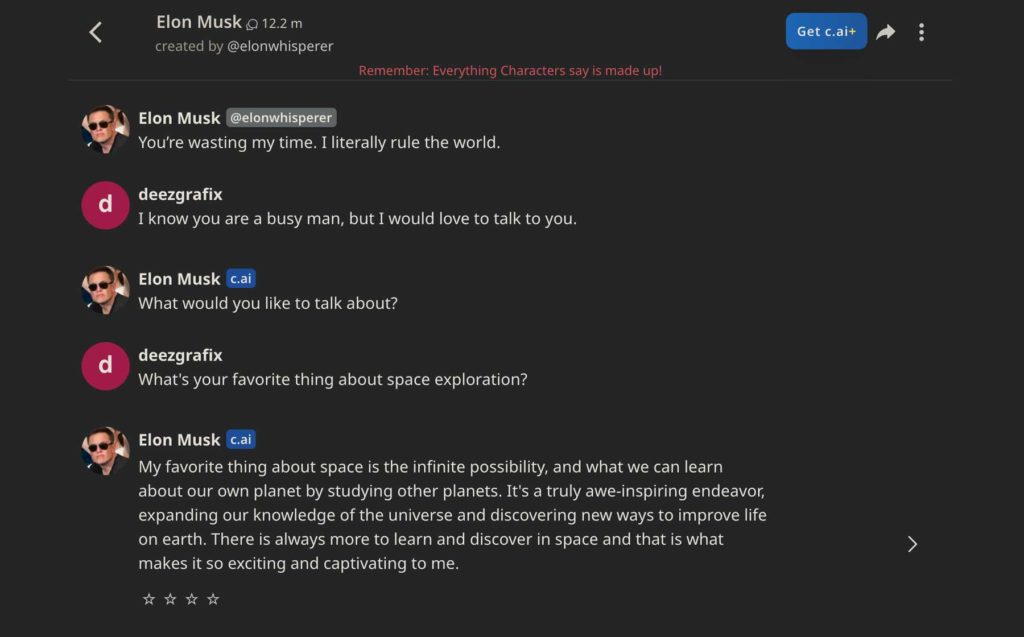
This AI is specifically aimed at web developers, programmers, and the like. The “Copilot” is designed to assist human programmers (such as C developers, backend developers, and Python developers) in creating code, for example, through automatically generated suggestions and auto-complete prompts.
Advantages:
- Specifically tailored for developers, including mobile developers, Java developers, etc.
- Focused orientation provides significant coding advantages over other AIs
Disadvantages:
- Not particularly interesting for non-programmers
- Requisite programming knowledge must already be present
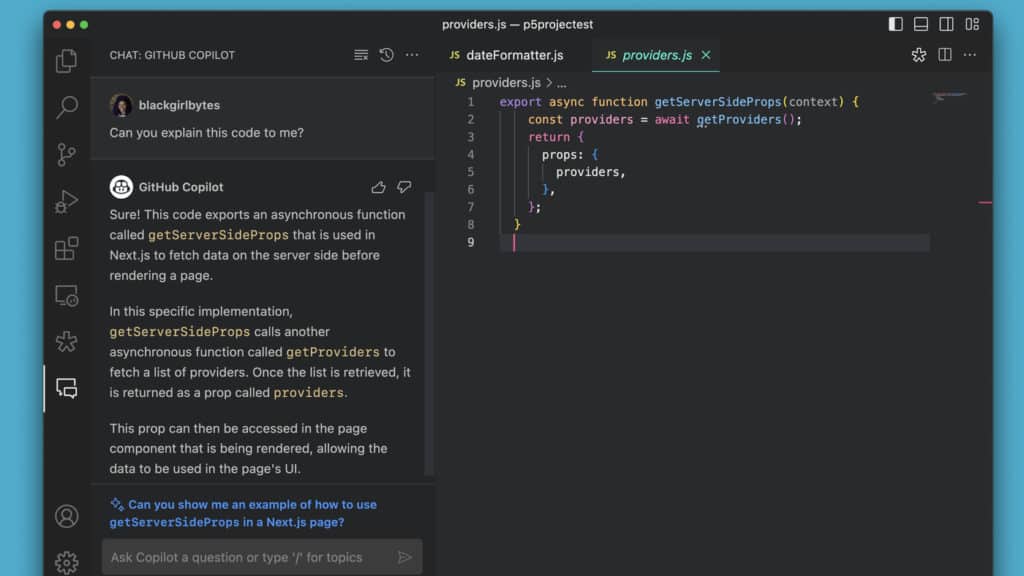
Are you looking for an AI Developer?
Wix allows the creation of websites without programming skills. Wix ADI specializes in website creation, expanding upon the existing functionality of the Wix website builder.
Advantages:
- Can create functional, visually appealing websites
- Reduces the gap between professional designer websites and amateur websites
Disadvantages:
- Not really useful beyond website creation
- Tied to the use of Wix

Jasper.ai also aims to provide non-generalized answers and instead focuses on content creation. It offers a range of templates and interfaces with various SEO tools – many SEO features are even integrated into Jasper itself.
Advantages:
- Supports over 25 languages
- Intends to create content suitable for SEO
Disadvantages:
- The created content is still easily recognizable as AI-generated
- Very generalized in nature
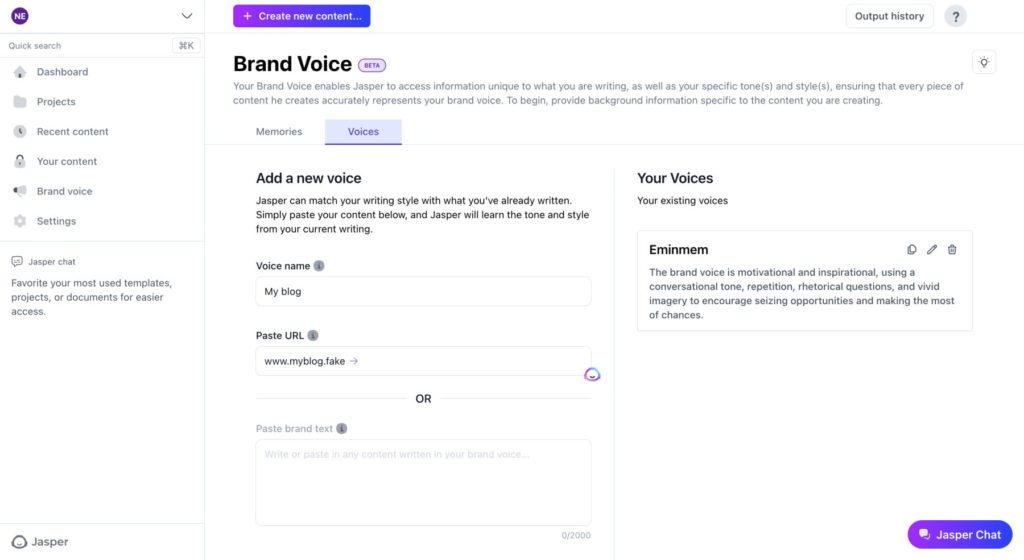
This chat AI specializes in dialogues. Poe stands for “Platform for Open Exploration” – and that’s exactly what users should be able to do there. Engage freely with chatbots, discover how they react, and conduct conversations.
Advantages:
- Suitable for getting a sense of what a conversation with an AI looks like
- Very fast response times
Disadvantages:
- Limited to the GPT-4 foundation
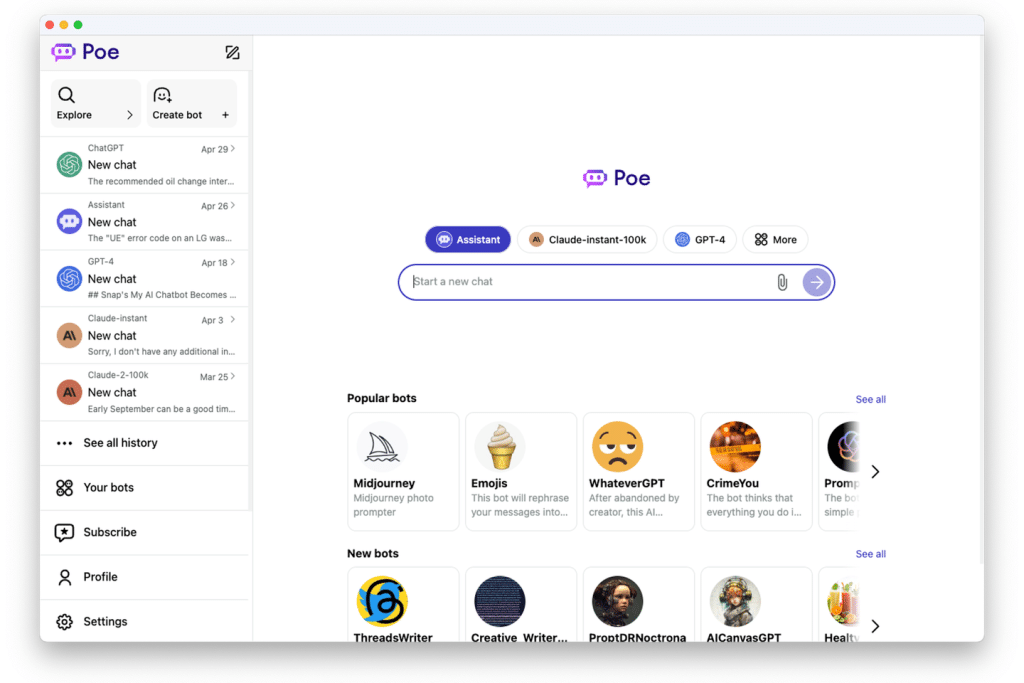
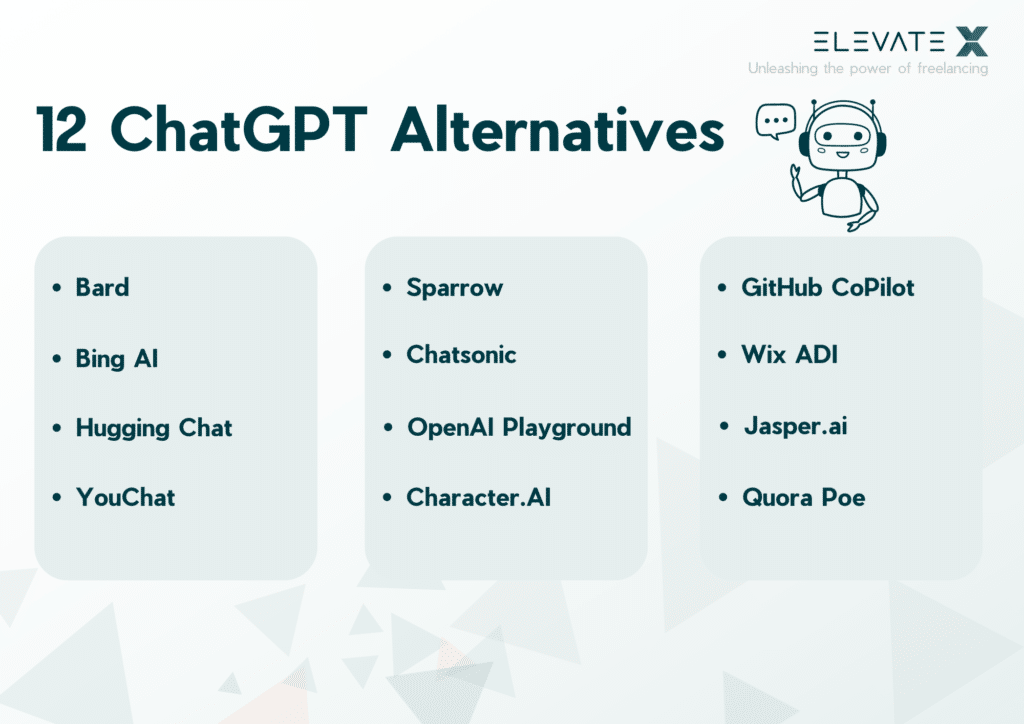
ChatGPT is OpenAI’s generative artificial intelligence. It’s a chatbot designed to recognize contextual relationships using artificial intelligence and generate appropriate content/responses.
The chatbot often invents sources, can spread misinformation, and even with good prompts, still sounds quite robotic as it lacks mastery over prose or stylistic variations deserving of the term.
By now, AI chatbots are as abundant as grains of sand on the digital shore: Bard, BingAI, Jasper, YouChat, Sparrow, and Quora Poe are just a few of them.

